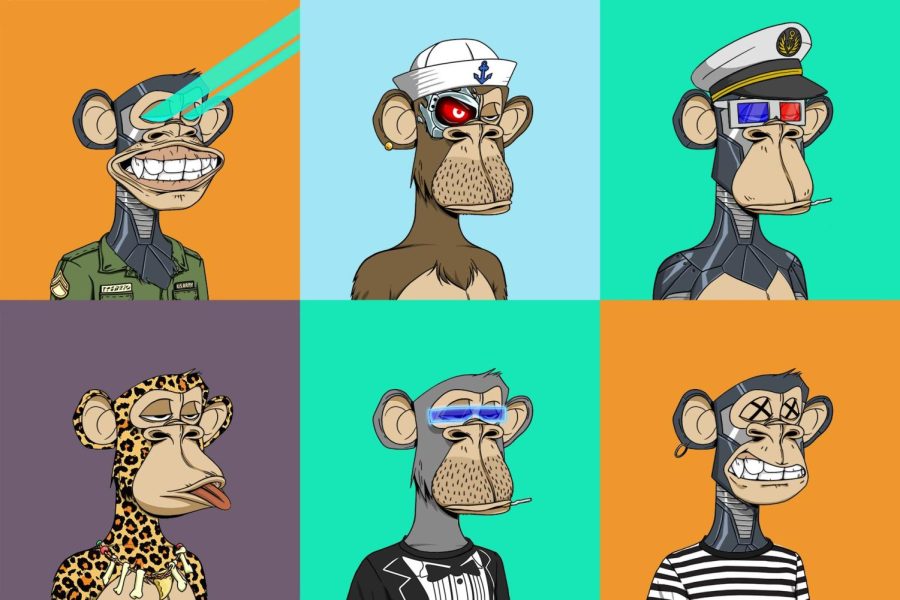NFT: the most divisive technology
March 27, 2022
Anyone who has been on the internet in recent months has probably heard of NFTs. NFT, short for non-fungible token, is the latest addition to the vast and controversial world of cryptocurrency. An NFT is defined as a “unique digital identifier that cannot be copied, substituted, or subdivided, that is recorded in a blockchain.” These digital identifiers are most often presented in the form of an image, video, or audio file.
The digital token has made waves in digital and economic circles as more people flock to cryptocurrency companies like BitCoin and Ethereum. The contention of the tokens is not with the files themselves, but their production and sale. The price for an NFT can range anywhere from 75 USD to nearly 7 million. To the average person, spending real world money on a file could seem preposterous. Computer science professor Jonathan Zittrain says, “People have complex reasons for buying things, and NFTs are no exception.” NFT enthusiasts validate their purchases with a multitude of reasons, including supporting artists and creators, investing in the expansive crypto market, or simply owning a unique piece of media.
Despite the support of many, NFTs have an equal number of criticisms. Detractors of the technology cite potential scams, environmental harm, and art theft. Financial markets researcher Michael Every says of the growing market, “It worries me intensely even if I fully understand the dynamic that drives younger people in particular.”
Regarding the content being sold as an NFT, artist Devin Elle Kurtz said,“I searched my name to make sure my art hadn’t been stolen and turned into NFTs, and sure thing, an obscure old piece from my DeviantArt is randomly on the front page of the marble cards NFT website? How is this allowed…” Kurtz and many other artists have voiced their concerns over NFT manufacturers potentially making money off of their creations and designs.
As of now, the NFT craze does not seem to be going away anytime soon. With both cheerleaders and naysayers for the new technology, it is important to do research and consider what you buy, especially when dealing with internet fads.


